Disclosure: Some of the links you’ll encounter are affiliate links. If you click and buy something, I’ll get a commission. If you’re reading a review of some precious metals company, please understand that some of the links are affiliate links that help me pay my bills and write about what I love with no extra cost to you. Thank you!
This is the total guide on blog commenting for SEO.
- Is blog commenting still effective for SEO?
- Does it work or not for backlinking purposes?
- Do followed links from comments actually hurt your site?
- How to comment and leave a lasting impression on everyone who reads your wisdom?
- Common and dumb mistakes bloggers make, and how to avoid them?
All this and more, MUCH more.
Come a newbie; leave a pro;
Let’s go!
Table of Contents
What is Blog Commenting for SEO And Should You Do it?
Blog commenting for SEO is leaving comments on other blogs and hoping to get direct SEO value from them.
That is blog commenting for SEO, but should you do it?
No, you should not?
Why?
Because it’s a useless waste of time and potentially harmful to your website.
However, blog commenting can be a healthy part of your overall digital marketing strategy.
And below you’ll find out exactly why.
5 Crucial Benefits of SMART Blog Commenting- You Won’t Find These Anywhere Else!
Smart blog commenting is not leaving comments for SEO purposes or for links, but because you:
#1- Can Gain More Niche Knowledge
Before you comment on someone else’s post you have to read it first, or at least thoroughly skim it to get an idea what it’s about and so not make a fool out of yourself.
Over time this extra reading will build a bank of knowledge for you and you will start to look and act like an expert.
This is valuable in today’s age when everyone is an expert and even computers are starting to write articles.
It’s crucial to get more knowledge to stand out from that faceless crowd.
#2- Get to Practice Writing
Comments are by nature short pieces of writing.
And crafting good comments means you’ll have to really focus to get your meaning across in a space of a few dozens of words or a few short paragraphs.
That’s an excellent writing practice for you and it will translate into you writing better articles and having more success with your blog or affiliate website.
You’ll also have to focus on not making silly typos and grammar blunders as those paint a clear picture of an amateur blogger.
Grammarly helps there tremendously.
#3- Will Build Niche Relevance and Natural Link Profile
When you consistently comment on blogs about SEO and NOT on blogs about gardening or anything else, Google will over time learn to associate your brand with SEO and dissociate you with any other niche on the web.
This is building your niche relevance and will help you naturally rank higher for pretty much anything related to SEO.
It’s a small thing but its also free and comes naturally with you targeting only niche relevant sites for dropping comments.
#4- Will Get Some Referral Traffic
Referral traffic you get from blog comments will never amount to anything big, so you won’t be growing and exploding your business on it.
However, you can get trickles of highly relevant and engaged traffic flowing to your site.
I say relevant and engaged because these people are taking the time out of their busy schedule to visit and learn more about you.
They’re your future customers and brand evangelists.
#5- Building Connections With Other Bloggers and Webmasters
When you’re leaving meaningful comments in a strategic way, then you want to get the 4 benefits from the above for sure.
But the main one you’re hoping to get is number #5, which is surfacing on the radar of a powerful influencer who already has a tonne of traffic and influence.
Impress them and they might; no let me rephrase that- they WILL over time start to support you.
This will be very valuable help to kickstart your young business.
For example:
Kevin Duncan is the chief editor of SmartBlogger.com. However, a few years ago he was just a budding freelance writer, regular reader and enthusiastic commentator.
He left valuable comments, one after the other, and got noticed by Glen Long, their previous chief content editor.
So, he got invited to guest post and that turned into a stream of guest posts and finally, Jon Morrow invited him to be where he is at now.
Blog commenting worked for Kevin, so why can’t it for you?
Working Smart- Creating an Efficient Blog Commenting System
As you can see, genuine commenting brings in a host of benefits. However, you won’t be building a business just by dropping comments on relevant blogs.
instead it needs to be a small part of your overall digital strategy, and to have success with it you must be extremely effective.
What do I mean?
It’s a simple 3-step process:
- Find sites from your niche to comment on
- Vet those site using specific criteria
- Create a commenting schedule and accompanying spreadsheet
Let’s quickly break down all three steps.
#1- Let’s Find Relevant Blogs to Comment on!
We’re going to set things up so that commenting opportunities come to you without you having to hunt for them.
In other words- we’ll use Feedly.
It’s free service where you can subscribe to your favorite blogs (read: blogs you want to target) and get updates whenever they publish something new.
So go and sign up!
Then search for blogs from your industry.
Subscribe to as many as you can.
You’ll narrow your choices later.
#2- Decide Which Blogs to Target
Here’s the truth:
to have success with blog commenting, you must focus on blogs that are most likely to notice and appreciate your efforts to bring value to them.
This means sites that:
- Have a single author;
- Are mid-tier traffic and authority wise;
- Have a vibrant commenting community;
- Have a webmaster who’s actively engaging with his readers.
#3- To Spreadsheet or Not? That is the Question!
So once you have those make sure you record them in a comment-tracking spreadsheet.
Here are the fields you spreadsheet needs to have:
- Blog Name.
- URL.
- Author.
- Do they have a paid product (optional)?
- How many comments have you left so far?
- Have they responded to your comments?
- Have they thanked you on Twitter for sharing their stuff?
Note: You don’t need to keep it perfect to have use of this spreadsheet, but you do need to have a spreadsheet because you’re approaching commenting as a marketing tactic.
This means you want to ensure it works because it working means more leads, sales and money for you.
Also, some of these fields might seem irrelevant to blog commenting but are actually very valuable to you.
Take the “product” field for example. Buying the product the blogger has created trumps leaving 50 superb comments any day of the week.
So if you wanted to connect with Enstine Muki, the fastest way would be to buy his affiliate marketing ebook.
And if you wanted to connect with Lisa Sicard you’d buy her “Learn to Tweet like a Pro” ebook.
You think they’d forget you after that?
Hardly!
But you’d also need to send them an email like this:
“hey name,
I just purchased you ebook on X and am digging it. Thanks for creating it. it makes my life so much easier when doing Y.
Cheers”!
Bottom line
You need to be organized about blog commenting to make it work;
you need a spreadsheet.
BUT!
you don’t need to create one because I will let you download my for free.
No need to thank me 😉
I set it to “view only” so you won’t be able to make changes, but If you want a copy simply go:
- File
- Make a copy
- Save to Drive
- Blog Commenting spreadsheet template https://docs.google.com/spreadsheets/d/18dZLj0h7tvVG3KOA2c-H8VYG7z2A4nB-3FQcv235gaw/edit?usp=sharing
Should You Try to Be the First?
If you’ve read other blog commenting guides, almost all of them suggest you try to be the first commentator so your link gets maximum traffic and exposure.
That to me is wrong advice and here’s why.
Imagine you’re writing a blog post. You’re in the zone. Ideas just flow. You can’t jot them them down how creative you’ve suddenly become, and… then Feedly pops a notification that a certain blog has just published a certain blog post.
So what do you do?
Do you drop everything and run to leave the first comment. Or do you ignore it and keep keep writing?
Of course, it’s the latter.
Remember, blog commenting, even if you become the best in the world at it, is always going to be a very small part of your overall marketing effort.
It’s not worth it to stop witting a blog post, which is a high return activity, to drop a comment which is low return investment of your time and energy.
How to Write to Stand Out- The Anatomy of an Excellent Blog Comment
Take a look and take note of this image.
And then continue reading.
First things first, great comment doesn’t need to be a lengthy comment.
You don’t need to write a novel to stand out.
You need to be human, genuine and contribute value through your experience with the topic at hand.
Can you do that?
Yes?
Great!
Here are the 4 parts of the wining comment.
#1- Greetings and personalization
This is nothing more than mentioning their name at the start of your comment.
#2- Praising the author or blog post
Do one or the other, but do give praise when it’s well deserved.
Always think that real people are giving it their all to succeed and boosting their moral costs you nothing, yet is a nice gesture.
And it helps open new doors for you.
#3- Offering value (the most important part)
Here you get a chance to shine and contribute to the post and increase it’s value.
This ain’t rocket science- just be natural and share your experience with the topic and you’ll do great.
#4- Finish with a parting promise
Promise to somehow amplify their post on the web. Every author loves that.
And that’s that.
Simple, right?
And now look at this image and see how all four parts create a wining comment for me, and recognition from Matthew Woodward.
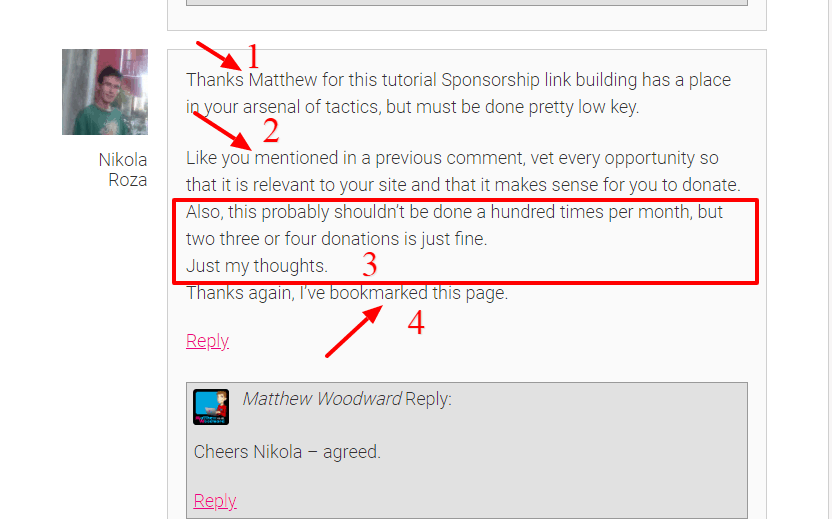
9 Common Commenting Mistakes You Must Avoid at All Cost- These Can Ruin Your Perfect Commenting Strategy
#1- Not Leaving a Link Back to Your Site
Whenever you drop a comment on a blog, make sure you leave your site’s URL in the website field.
It’s a normal and expected, and you should do it if you want to make blog commenting part of your digital marketing strategy.
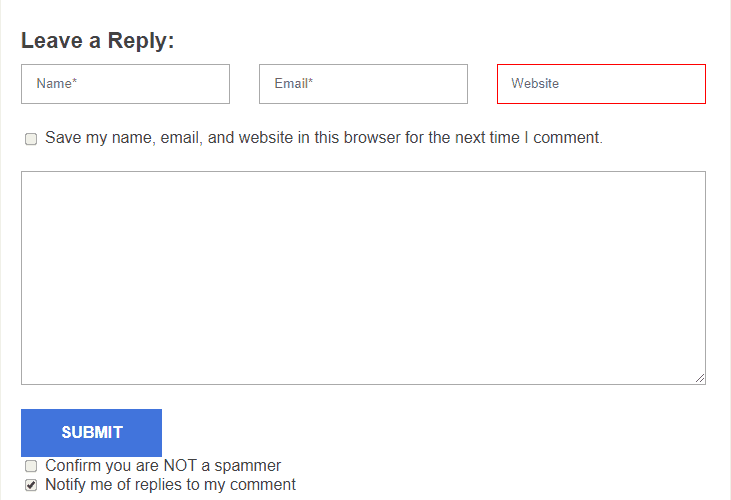
#2- Using a Keyword Instead of Your Name
Whenever you use a keyword instead of your real name, you send out these messages:
- a) I haven’t got a clue about this SEO thingy and I think this will help me rank- SEO is EASY!
- b) I’m only commenting because I want to help myself. I don’t CARE about the webmaster who wrote the post.
- c) I hope to steal traffic from the post I commented on. My keyword-rich anchor will attract peeps like flame attracts the moths
- d) I’m a spammer (Note: if a blogger uses CleanTalk, your comment won’t even reach their spam inbox)
Here I left me a good comment on my AccuRanker Review, just to show you how spammy it looks like.
An excellent comment, wasted 🙁
#3- Not using Gravatar
Gravatar is a service that let’s you have an image of you next to your comment.
It’s a way to personalize your comment and show there’s a real human behind the keyboard.
And yes, an image of you and not of your brand. Even if you’re leaving comments to promote your brand.
Why not brand?
Because brands are faceless entities, while people (usually) have faces.
And even an ugly mug is better than pretty logo of an unknown company.
#4- Using a Fake Email Address
Now why would you do that?
Only the blog’s webmaster can see your email address and you want them to see it because it’s a way to reach you after you’ve impressed them with your awesome comment.
And you never know when it will happen.
For example, I’m a freelance writer for hire and my first gig ever came after I left a comment on a blog and the webmaster was thoroughly impressed.
So, he followed the website link I left in the comment field, came to visit my site, found my hire me page and hired me
And here’s the comment that did it, in case you’re curious.
#5- You’re Repeating What Someone Else Said
Besides reading the blog post, I also encourage you to skim the comment section before writing a single word.
It’s because you don’t want to make a mistake of repeating what someone else said before you. Even though you didn’t do it on purpose, it’s still an embarrassing mistake, especially if it looks like you copied a previous comment.
#6- Spamming People
To spam is to make life miserable to a webmaster. Do it and they will hate you with gusto.
So:
- Don’t drop irrelevant links;
- Don’t leave gibberish;
- Don’t comment in a foreign language.
Don’t everything else that’s bad.
Use common sense.
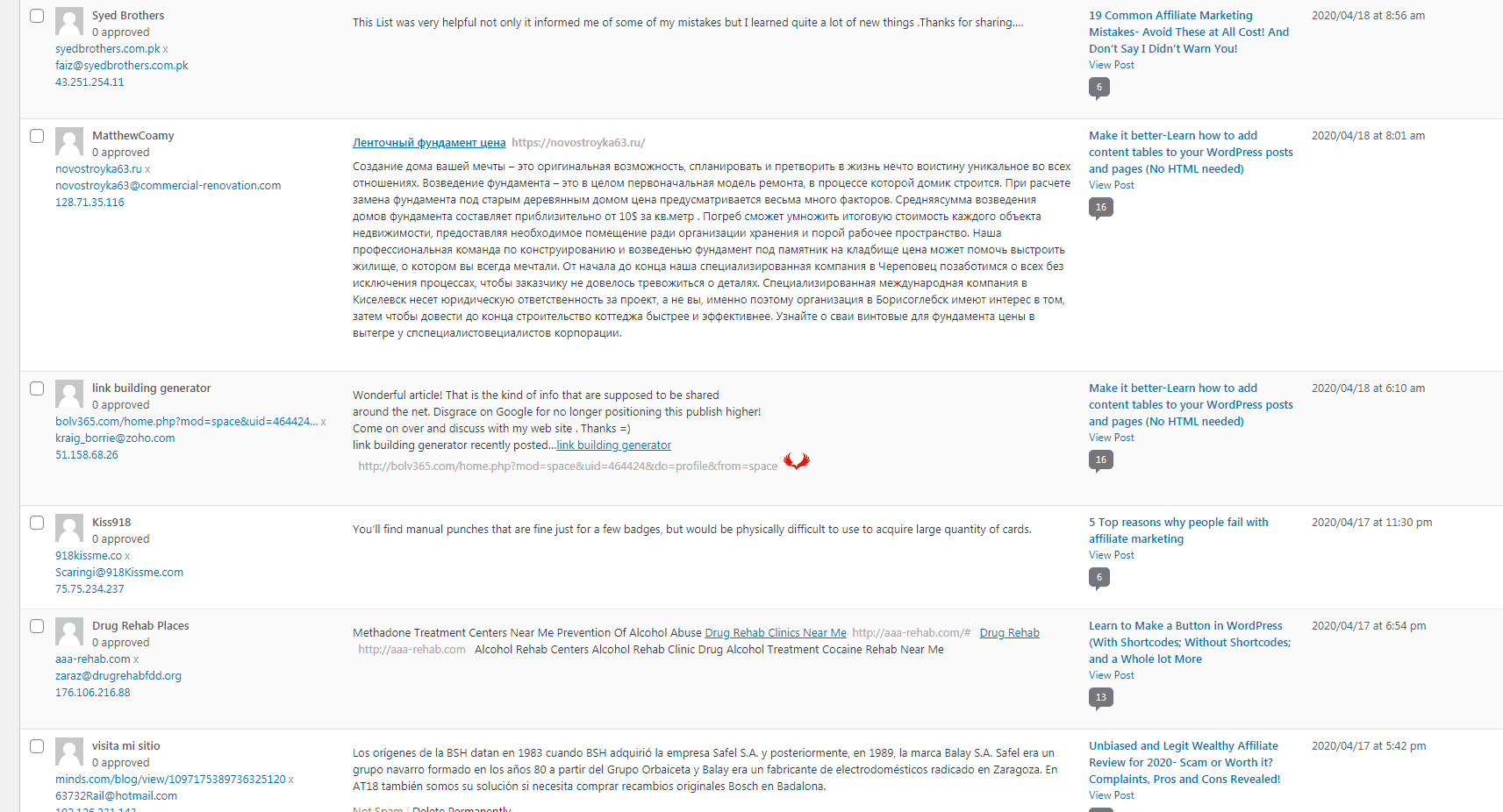
#7- Commenting on Non-Relevant Blogs
Don’t comment on irrelevant blogs and if you do, don’t leave your site’s address.
Why?
Because it will confuse Google as to where your site belong (that relevance thingy); and because any traffic you get from that link will be worthless to you as people will see they don’t understand a thing and’ll leave in droves.
This can even cause SEO problems because of a unnaturally high bounce rate. If people are leaving your site in a hurry, there must be something seriously wrong with it, right?
Do’s
- Comment on relevant and niche blogs
- Leave a link to your site
- Fill the “website” field wit your real name
- Leave value-packed comments
- Share the article after commenting
Don’ts
- Spam
- Leave irrelevant comments
- Use a keyword instead of your name
- Copy other comments
- Be a jerk
Blog Commenting FAQ- All Questions Answered (Finally!)
a) Does Blog Commenting Still Work or Not?
It doesn’t work for SEO if that’s what you mean.
It does work to build up your brand and to help you create a flourishing online business.
b) Is EDU Blog Commenting Still Effective for SEO?
No, it’s not
Why?
Because that technique is old and spammers have long gotten a hold of it.
Now, comment sections of pretty much all EDU sites that allow discussion and are lax on moderation are like landmines for visitors.
Wherever you click you’re taken to a terrible website trying to sell you something you don’t want.
You don’t want your site’s url to keep that kind of company, right?
c) Are CommentLuv Backlinks Good for Rankings?
No they are not. For a plethora of reasons.
Here are some of them.
#1- They’re incredibly spammy
Take a look at this image.
its commentluv link and it’s chock full with keywords, because it’s the title of the post turned into anchor text.
The problem here is not that one comment but dozens more that you need to get to feel an impact in the SERPS.
But, by getting more of these you run the risk of keyword over-optimization which means Google Penguin will eat your site like real penguins eat fish.
In a flash and with no remorse.
#2- They’re Ineffective
All pages that allow comments are divided into two sections:
- Content;
- user-generated content.
And they’re clearly divided in the source code of the page by a little UGC tag.
If you don’t believe me, see for yourself.
Go to my Wealthy Affiliate Review, which has a lot of comments. Right-click and “inspect source” then hit CTRL+F and type “ugc”.
I bet you’ll find a lot of these and it’s WordPress automatically labeling comments (and their links) as user-generated content- which means those are worthless for SEO.
#3- Followed Blog Comments Expose You as a Link Builder
While these comments alone won’t get you into trouble; having them in quantity in your link profile might trigger a manual review on your site.
And then, who knows what else some human reviewer will find.
#4- Cost Per Opportunity Ration is Just Too High to be Worthwhile
To get any advantage from this link building strategy, you’d need to generate a master list of several dozens Commentluv enabled blogs. Then you’d need to leave at least five, but often many more comments to be granted a “do-follow” status.
We’re talking hundreds of comments here for very unclear and murky benefits.
Plus It’ll take a lot of time!
Time that’s better spent on:
- Building content for your site
- Getting quality links with email outreach
- Genuine, value-packed commenting on other blogs (more on that later).
Also, this is a spammy tactic;
And other webmasters are not stupid. They know why you comment.
You wish to benefit yourself and couldn’t care for their blog and their success. So you’ll be burning bridges left right and center.
d) Can I Get Significant Traffic Through Blog Comments Links?
Significant- no.
But meaningful- yes.
All it takes is for the webmaster of that blog to visit your site, like a piece of content and link to you, and suddenly you got a real SEO boost.
For example:
A while back I left a comment on Cognitve SEO’s blog:
And Adrian Cojocariu, the chief writer there, liked it so much that he referenced my comment, (and linked to me) from one of his next articles.
And I got a very powerful backlink that helped my then young blog gain some steam.
e) What is Ghost Blog Commenting?
Just like there’ ghostwriting, where a freelance writer creates content in the name of a high profile blogger; so there is ghost blog commenting.
It’s when a blogger hires another blogger to leave comments in their name.
That is a smart approach because you still get the benefits of good blog comments while your hands are free to pull more important levers for your business’s growth.
f) What Are Some Common Footprints I Can use to Find Sites To Comment on at Scale?
I’m against this because it shows you haven’t grasped the gist of healthy blog commenting which is building relationships with fellow bloggers.
But since I aim this to be an ultimate blog commenting guide here are the footprints you can use.
g) Is it Worth it to Purchase a Blog Commenting Package on Fiver? It’s Only $5, How Can it Hurt?
It’s not the money you should be worrying about. It’s your credibility as a blogger and a brand.
When you purchase a package that promises thousand of comments, do you really think that a living and breathing person is going and manually adding those comments?
Well no, of course not.
Instead, these people employ automated scripts, tools and software that look for any un-moderated commenting sections to drop your site’s link on.
And you can guess what kind of niche relevancy you’ll get with these, can’t you?
h) HELP! Spammers Are Attacking My Blog? Why?
You probably haven’t configured Akismet correctly.
It’s a free plugins that comes with your WordPress installation.
Configure Akismet and spammers will vanish as if removed by magic.
i) How Can I Disable Comment in My WordPress Site?
Sometime, disabling comments is the best optiion and here are two simple ways to do it.
#1- Disabling comments on a websites level
In your WordPress dashboard go Settings/Discussion and uncheck the box that says “allow people to submit comments on new posts”
#2- Disabling comments on a post-per-post basis
Scroll to the top of the post and find the “Screen Options” link. Click it and simply uncheck the “Discussion” box.
 (Conclusion) Blog Commenting For Better SEO and More Traffic- Effective and Worth it for You? Or Not?
(Conclusion) Blog Commenting For Better SEO and More Traffic- Effective and Worth it for You? Or Not?
At the start of this post I promised you a total guide on blog commenting.
And tell me- have I delivered on my promise or what?
I mean, you learned:
- That blog commenting, when done right, is still effective for SEO.
- That you can’t get any link juice no matter the follow/nofollow status.
- That followed link from comments hurt your site in the SERPS
You also mastered the art of great blog commenting that impresses everyone.
And finally, now you will never make mistakes that have you cringe days after you’ve made them.
You came into this post a noob, or at least an inexperienced commentator eager to learn; and you go out a ninja.
Now you have all knowledge you need to succeed.
But all knowledge in the world won’t help you one iota if you don’t apply it.
So go out and start applying what you learned, and my blog post about commenting is perfect for you to drop a comment on.
Oh, how meta!
😀
Nikola Roza
Nikola Roza is a blogger behind Nikola Roza- SEO for the Poor and Determined. He writes for bloggers who don't have huge marketing budget but still want to succeed. Nikola is passionate about precious metals IRAs and how to invest in gold and silver for a safer financial future. Learn about Nikola here.


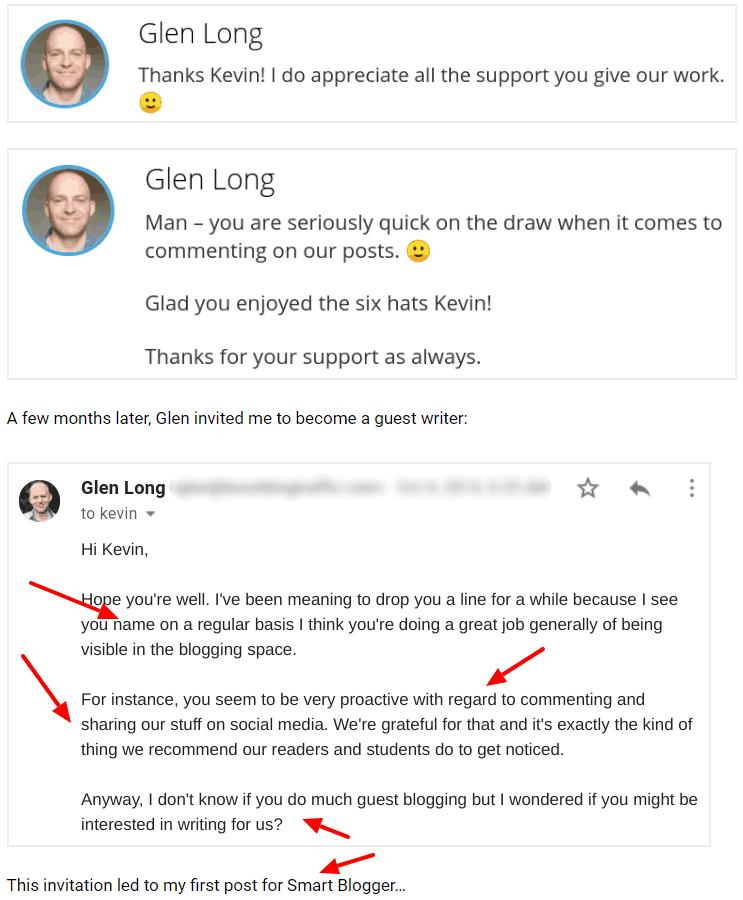
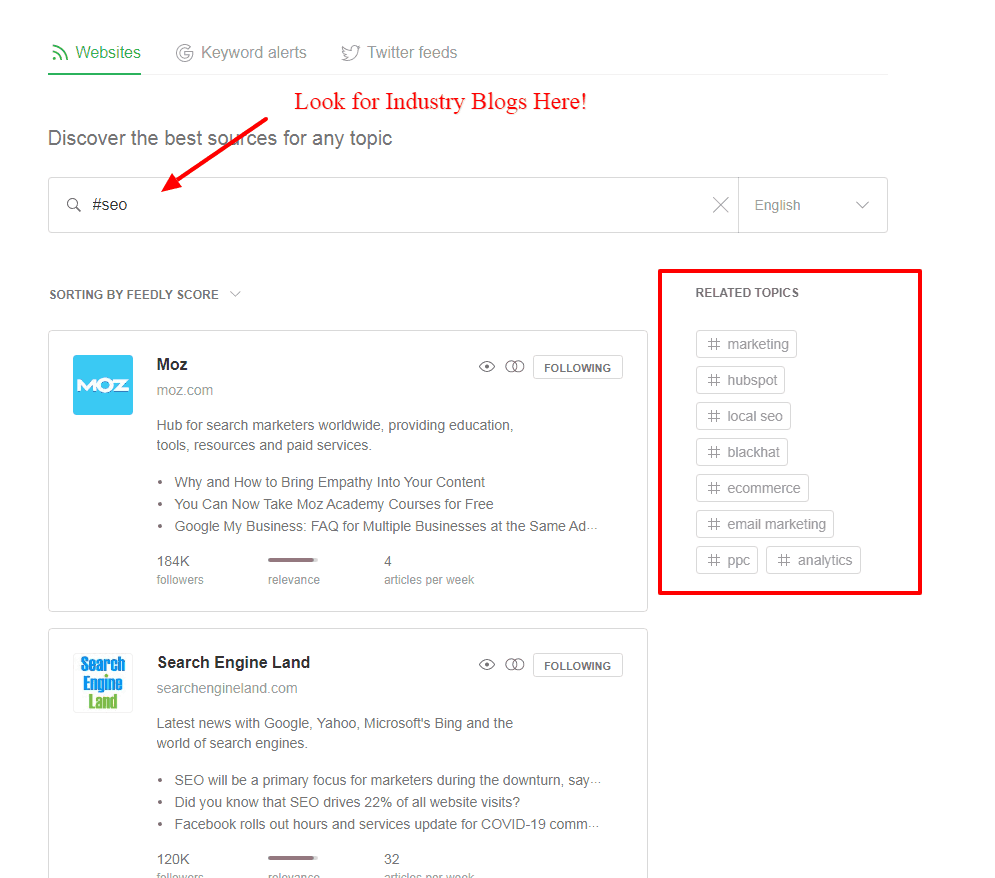
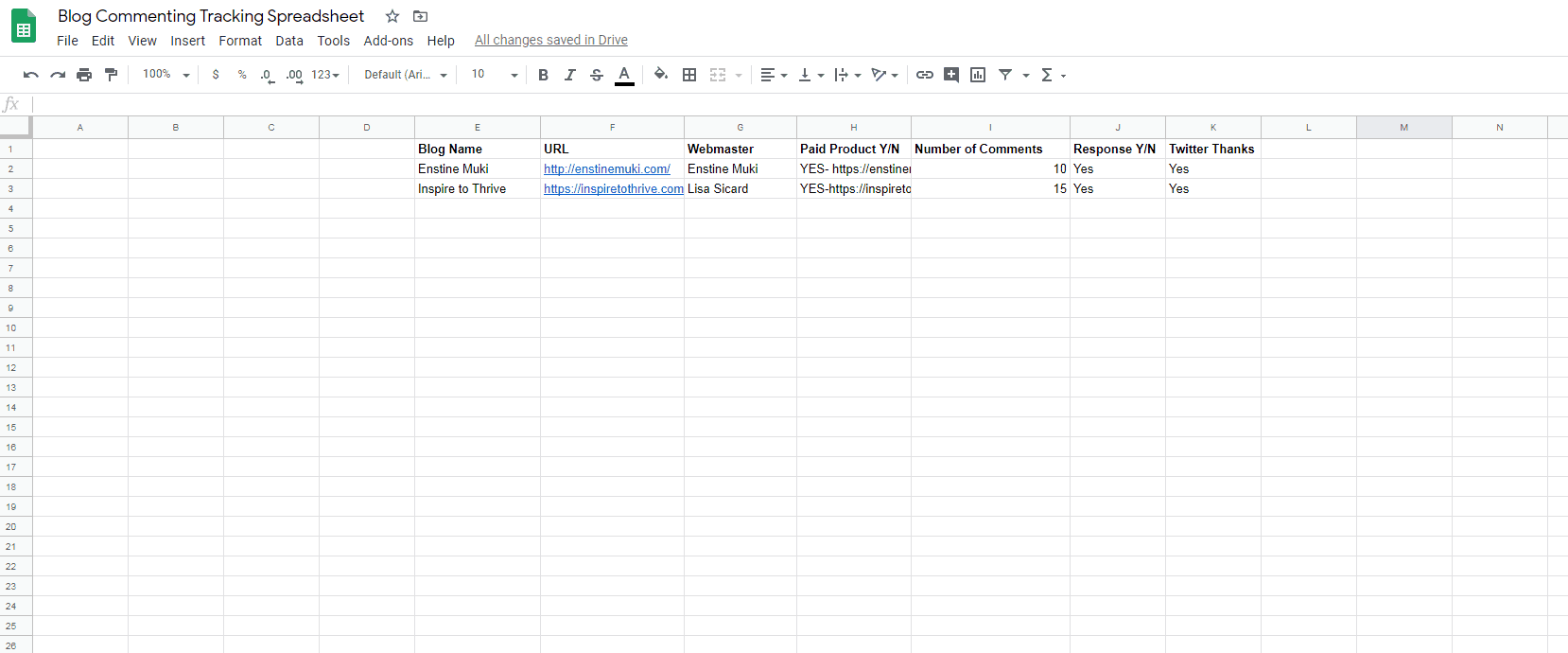
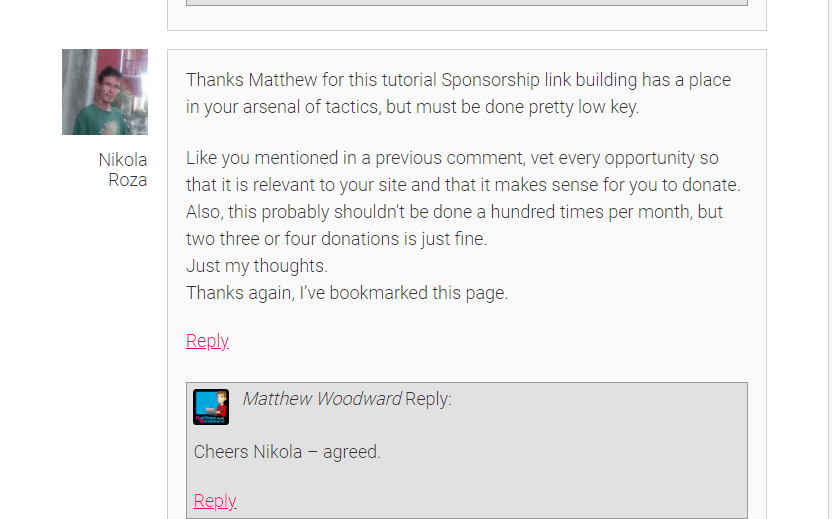
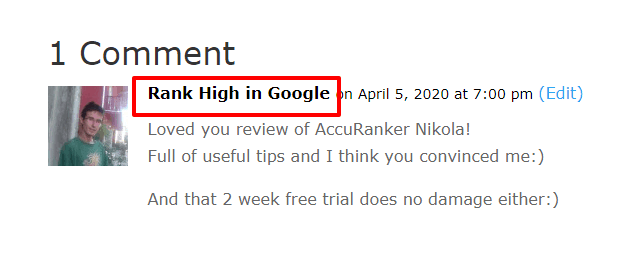
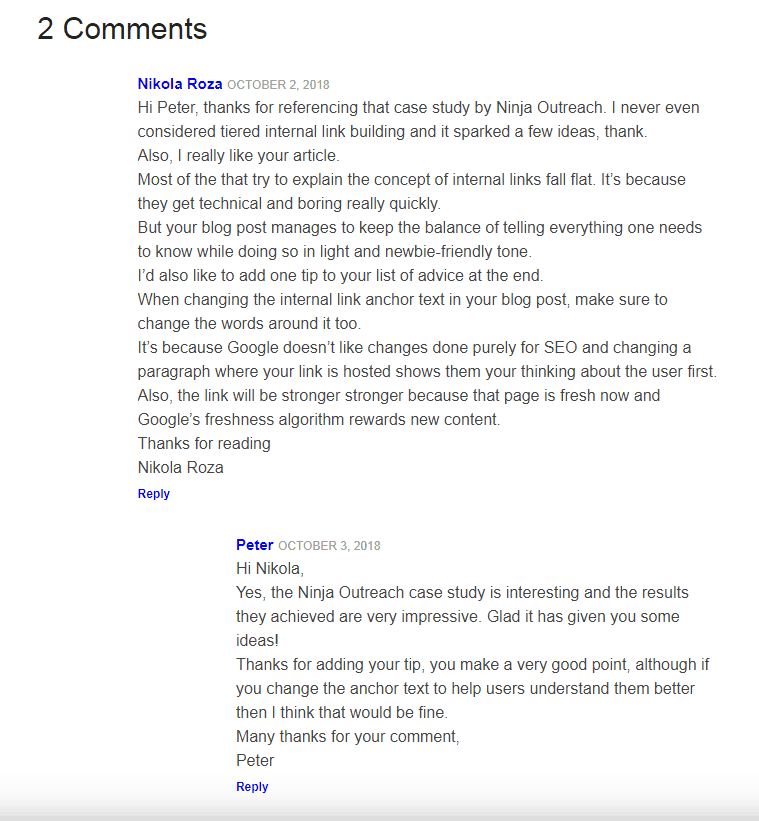

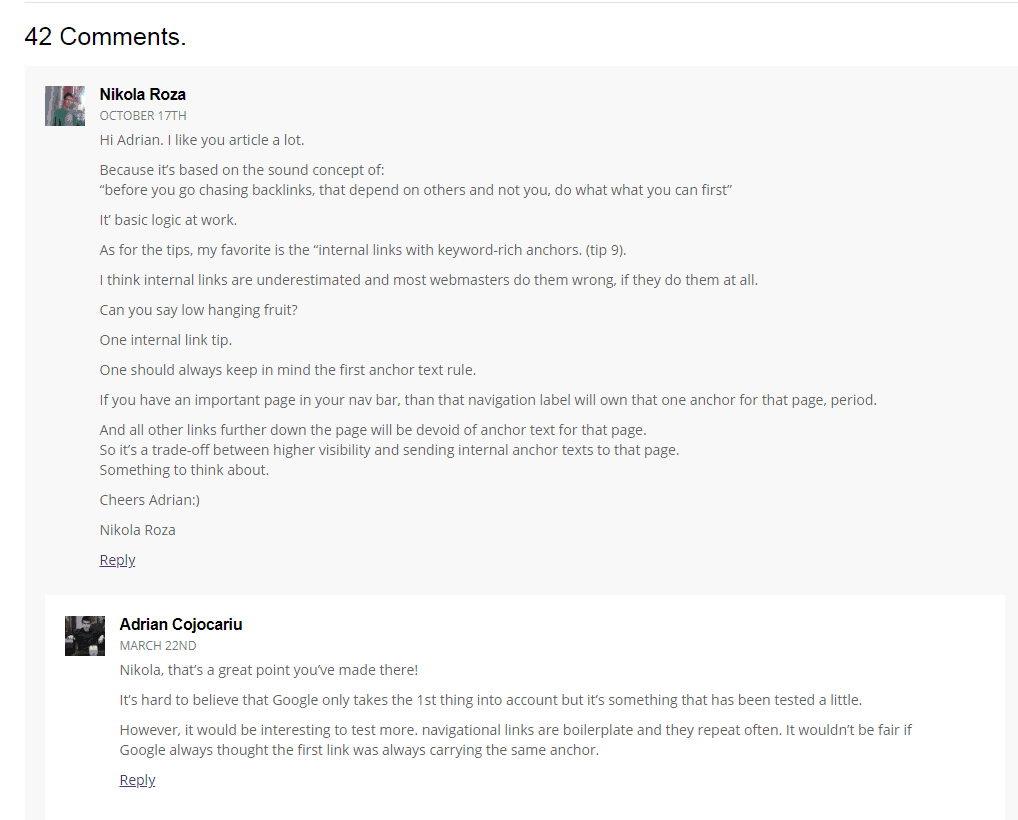
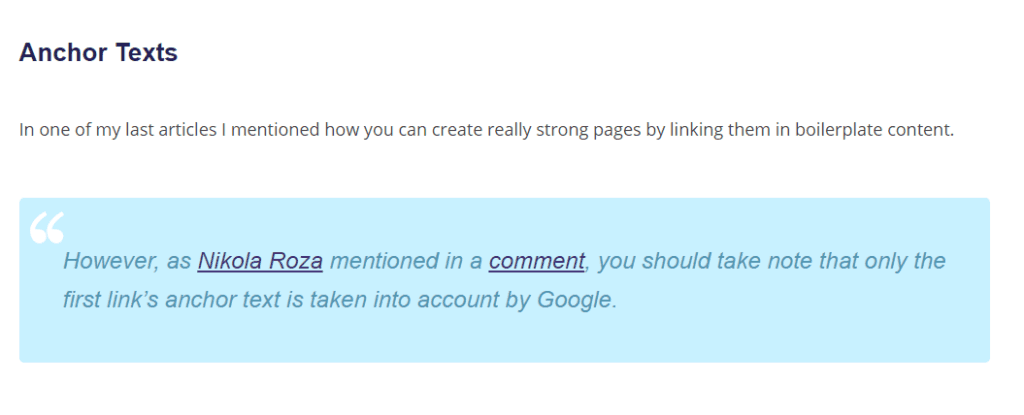
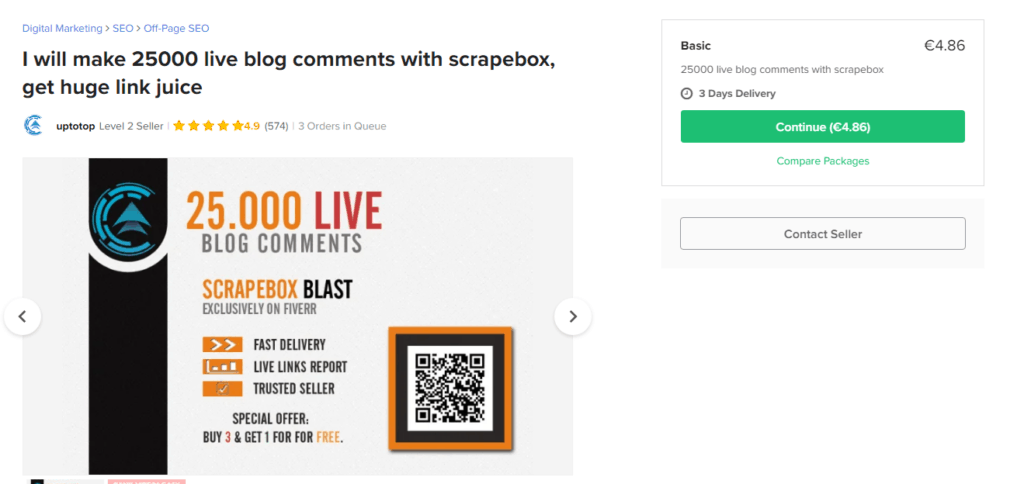
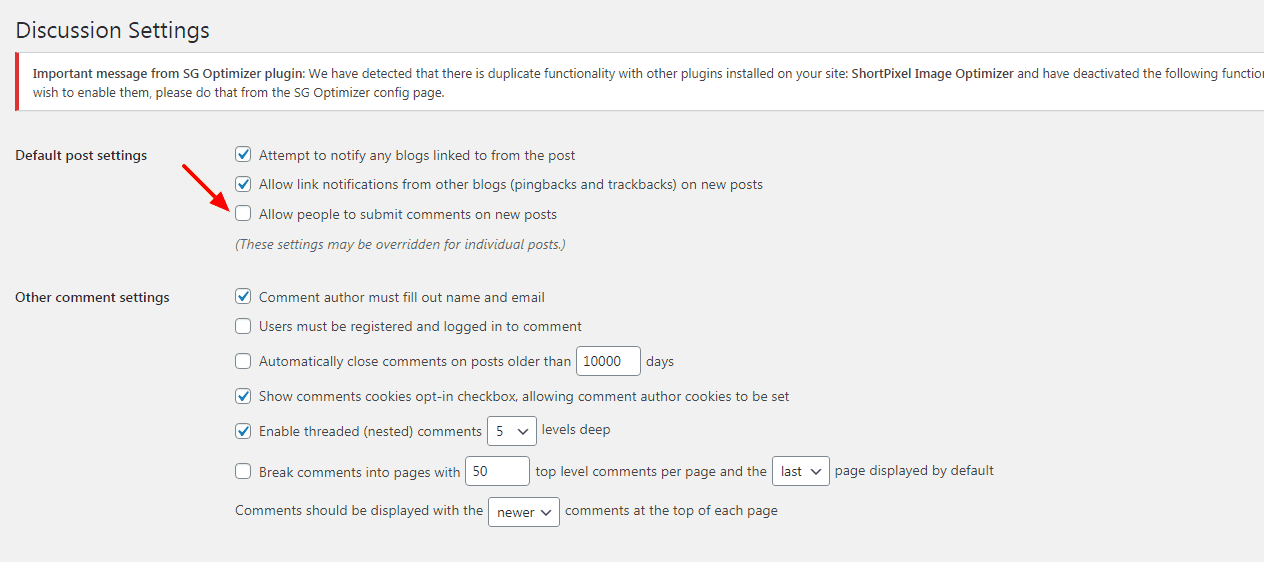

Informative article. Thank you for sharing. If EDU Blog commenting not effective for SEO, so why we do we do it?
It’s an outdated tactic that used to work once. People do EDU commenting today because they think it still works, and because they don’t know any better.
It doesn’t work!
Nikola this is one heck of a guide buddy. I spend so much time guest blogging these days that I have little time to comment genuinely on blogs. I do check in, here and there, to share my thoughts. I dig commenting for a new blogger way to meet friends. So few barriers to entry for newbie bloggers in the blog commenting game.
Thanks Ryan, so true. Blog commenting for lasting friendships is an evergreen strategy.
Hey Nikola!
Great article, and I think that #5 is the most important. In this way, I do look as blog commenting as having an effect on SEO – not directly, but through the networking.
I keep a spreadsheet and Feedly also, but in all honesty I’ve been away from blog commenting for so long that some of my old friends are no longer actively posting. Will have to start reworking it…
I don’t seek out networking with the goal of getting something out of the relationship, but I think these benefits are a natural by-product of making connections and friends. Because of that, I also use a personal CRM to track what stage I feel I’m at with different connections. Usually, a public blog comment or tweet is the first step in the process. Email tends to follow shortly after and from there, I really work to build a more personal connection and try to work together on something.
I think when you have a system in place and know both what to do next and why you’re doing it, blog commenting / networking is incredibly scaleable – and great for natural backlinks in the long-run!
Exactly so James,
blog commenting as an introduction to the world of collaboration and helping each other at every turn.
Hi Nikola,
You have explained everything in detail about blog commenting. I strongly believe commenting on niche blogs helps to get some refferal traffic.
Hey Nikola,
Thanks for the detailed guide on Blog Commenting.
I have a quick question for you. What’s your opinion of Ghostwriting for comments. If the influencer hires a blogger and he misuses the opportunity, then the Influencer may lose his reputation. Probably the blogger may write a spam comment or link to a low-quality website.
Are influencers ready to take such kind of risks that will put them into deep troubles?
Regards,
Nirmal Kumar
Hi Nirmal,
it’s the same thing as when hiring ghost writers. You wouldn’t hire just anybody, right?
Find someone you trust and entrust to them commenting on your behalf. And as a precaution they can send you a Google spreadsheet with the url’s where they’ve commented.
That’s how I’d do it.
Hi Nikola,
Blog commenting as a marketing tool has a long history in online marketing. It has remained one of the indispensable content marketing and relationship building tool.
In today’s digital marketing world, blog commenting for the sole purpose of SEO may not yield anything significant.
Search algorithms get smarter with each update, Google now understands better the value of contents on each page.
Though, according to a recent study by Neil Patel, blog commenting still holds a place in increasing search visibility, but not as effective as it was in the past.
For me, blog commenting is more useful for relationship building than any other thing. If you focus on building a meaningful relationship using blog commenting as a tool, a few other benefits of it might just follow.
Thanks, Nikola, nice read.
Hi Nikola,
What else have you left out in this Ultimate blog commenting guide ? Nothing!
You nailed every single point. Blog commenting is a powerful digital marketing skill.
One point you made – I want to question (my bad).
The part of leaving your link in all comments you made. I felt it contain indirect traffic but hurts SEO (a little bit). Now imagine having your comments on 100 blogs (50 comments each with a no follow link)… It kind of reduce your link profile.
We all know no follow comments has little to no benefit. You don’t want your link profile to be filled with comments backlinks (Even worst, no follow).
What do you think about that Nikola?